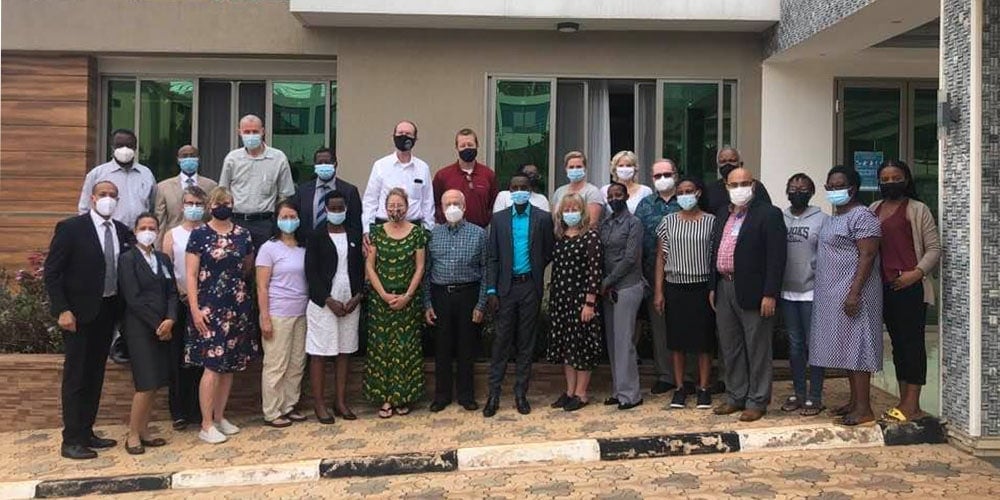
Thirty-four medical students and scores of guests participated in the first white coat ceremony at the Adventist School of Medicine of East-Central Africa (ASOME) in Kigali, Rwanda, on November 12, 2021.
Guests included some of the students’ parents, sponsors, Seventh-day Adventist Church health and education leaders, and Rwandan government officials.
ASOME, located on the campus of Adventist University of Central Africa (AUCA) which is led by president Kelvin Onongha, was officially inaugurated in September 2019 by Rwanda president Paul Kagame. More than two years later, due to the pandemic, the school is celebrating the first cohort of medical students, who are expected to graduate in 2027.
“Students, you are the future, and we are so delighted to have you here,” ASOME founding dean Eustace Penniecook said as he welcomed the class and the rest of the people present at the ceremony. Penniecook had a special mention for all the parents who managed to travel and be present. He also mentioned the ASOME teachers and AUCA lecturers. “Thank you so much for being here,” he told them.
All Compassion, All Comfort
In a special address to the first class of the new school, Adventist Health Ministries (AHM) associate director Zeno Charles-Marcel reminded students how the white coat became a symbol of a professional life dedicated to service. He explained that through the years, a doctor has become a symbol of someone who could be trusted. “But,” he added, “there are many professions that wear white coats. What will distinguish you?”
By way of an answer, Charles-Marcel quoted the apostle Paul in his second letter to the Corinthians, where the apostle thanked "the Father of mercies and God of all comfort, who comforts us in all our tribulation, that we may be able to comfort those who are in any trouble” (2 Corinthians 1:3, 4, NKJV). “It is the comfort we receive from God that overflows to our patients,” Charles-Marcel said.
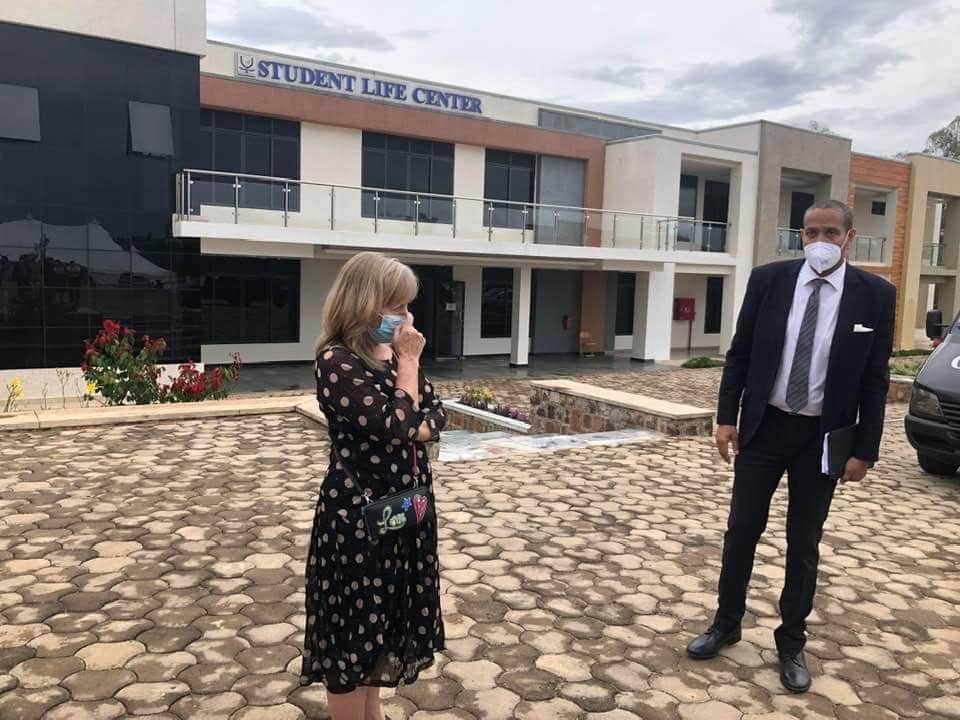
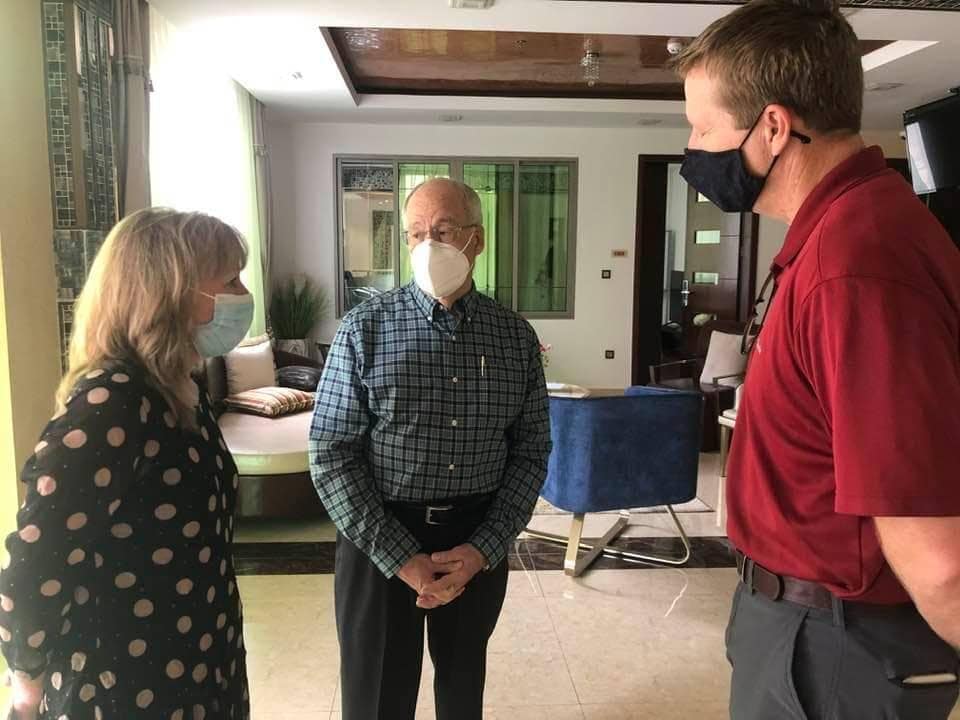
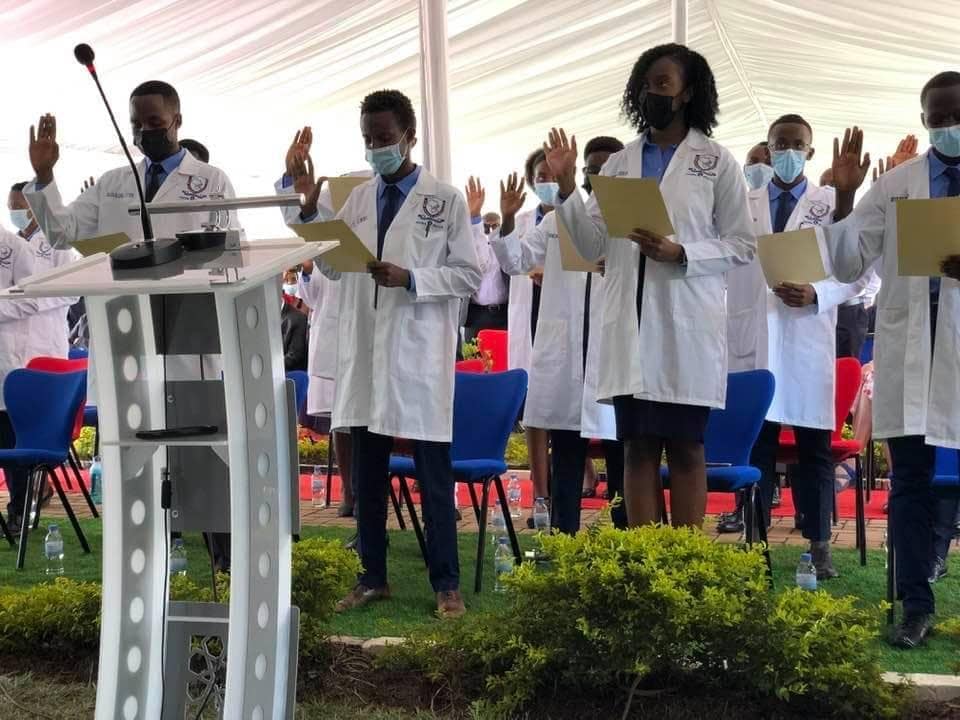
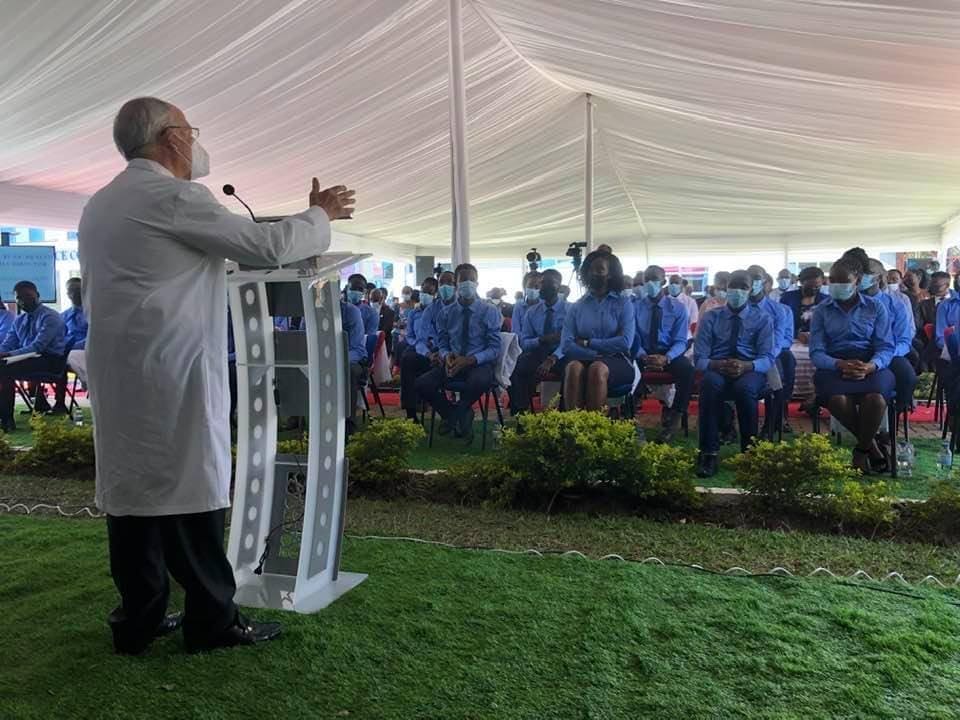
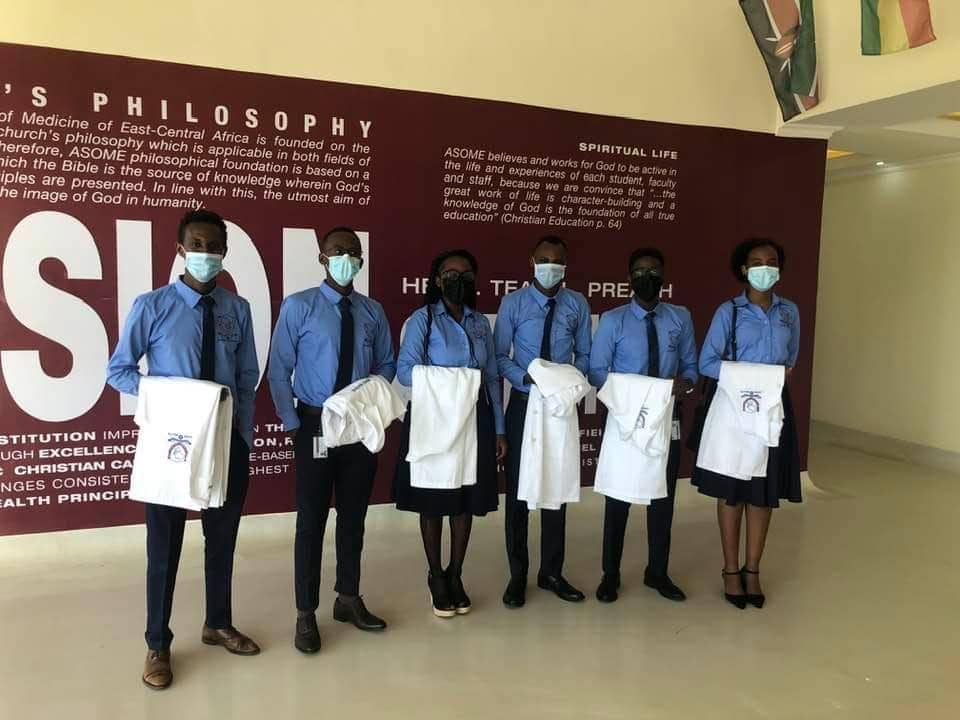
**
He explained that physicians have at their disposal the best that science can offer. “But sometimes science can be very cold,” he acknowledged.
At the same time, he added, as Christians “we have the best that heaven can offer. And God is a God of science. He created it. We are not in opposition to true scientific discovery. And when you wear your white coat, you are saying that you are in the pursuit of truth wherever it may lead you. And you are going to look for and find the truth and apply it not just to your life but for the benefit of humankind.”
Moved to Compassion
Peter Landless, AHM director, said he felt privileged to be present at the ceremony “to witness history.” He shared how he was often asked, “Why a school of medicine in the East-Central Africa Division [ECD]?” He answered, “The simple answer is, ‘Why not?’ ”
Landless explained that for him, “it’s a no-brainer.” The ECD is currently the world church division with the biggest percentage of membership. The region includes 15 hospitals and nearly 200 clinics and dispensaries, he noted.
He reminded students, leaders, and officers that Seventh-day Adventist medical education is not a franchise simply of medical education. On the contrary, he said, “it is an education focused on training medical missionaries in the pattern of the Great Physician, to extend the healing ministry of Jesus.” Quoting Matthew 9:36, Landless emphasized that Adventist physicians must also show the compassion of Jesus. “You are being called to be shepherds today — healing shepherds, caring shepherds.”
“As you go, be strong and of very good courage, because God is with you,” Landless added. “He will never leave you, never forsake you. Go and make a difference; go and be the difference. Touch, listen, support, and sometimes heal!”
Loma Linda University dean of medicine Tamara Thomas, also present at the ceremony, agreed. “We have a whole class of medical students who have been chosen for a purpose, who were chosen because they could support a mission, the mission to continue the healing ministry of Jesus,” she emphasized. “And it is an important day because all of us have a common mission. We are very excited to see the next generation of physicians being formed here today,” she said.
Pledged to Serve
After being invested with their white coats, students read a pledge in which they promised to dedicate their lives “to the furtherance of Jesus Christ’s healing and teaching ministry.” They also promised to “go and serve the community,” sharing their knowledge with people around them. They read, “I will live a life that exemplifies what I believe. The wholeness of my patient and my community will be my first consideration. I will maintain the utmost respect for human life. I will not use my medical knowledge contrary to the Law of God,” among other promises.
After the pledge, Patrick Ndimubanzi, director-general of human resources development of the government of Rwanda, addressed the class, sharing with them three characteristics that, according to him, will help them excel in their mission.
“To be a good doctor, you have to be patient,” Ndimubanzi told them. “You [must dedicate] the time to learn; it doesn’t come easy. You need to be patient to help those who are not moving as fast as you do.”
He also called them “to be humble enough to say, ‘I don’t know; I’ll look for help.’ ”
Finally, Ndimubanzi appealed to each of the 34 members of the class of 2027 to give “the generosity of [their] time.” “It is not a sign of softness or weakness.… It’s what you have been preparing for,” he told them. “To be a good doctor, you have to be a good human being.”
A Long and Difficult Journey
Lisa Beardsley-Hardy, director of the Education Department for the General Conference of Seventh-day Adventists, reminded those attending the ceremony that ASOME is the seventh Adventist school of medicine around the world. It is also the second in the African continent after the Benjamin Carson School of Medicine at Babcock University in Nigeria (established 2012).
Besides Loma Linda University in California, United States, and the one in Nigeria, Beardsley-Hardy noted, the Adventist Church has opened medical schools in Mexico (1973), Argentina (1994), Peru (2012), and the Philippines (2015).
On behalf of the ECD, the world church region comprising eleven eastern and central African countries, including Rwanda, ECD president Blasious Ruguri thanked parents and sponsors who are allowing these students to become Adventist professionals.
He noted that the results they are now celebrating required years of hard work. “It has not been a simple journey … to get this school in place,” Ruguri emphasized. “It was a very long journey, and to get at where we are today, it’s a miracle itself.”
Ruguri acknowledged that at times, some of them “almost gave up along the way.” He admitted, “Sometimes I would ask, ‘Are you sure we made the right decision?’ Establishing a medical school is a nightmare and a very costly undertaking.”
But the hard work paid off, and now students, parents, faculty, government officials, and church leaders are enjoying the results of those hard-fought dreams, Ruguri said. He addressed the students: “Class of 2027, I wish to challenge you to be our trailblazers! Do not let us down!”